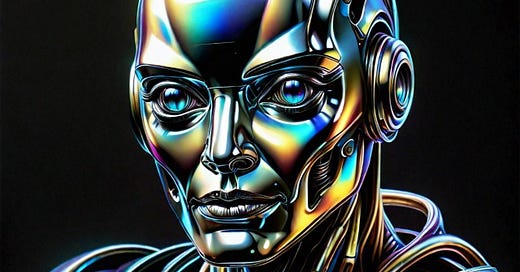House of Suns is a true space opera. Now, I am not a fan of space operas and if you are like me, there is a lot that’s not to like in “House of Suns”: A lot of time is spent reading descriptions of ships and various methods for space travellers to slow down subjective time, there are lots of space battles described in excruciating details, and we have our fair share of not quite human humans: I haven’t read about centaurs in a while, and, as usual, humans and sentient machine intelligences don’t always fully get along.
Nevertheless, I actually quite enjoyed Alistair Reynolds 2010 novel: Just like in “Pushing Ice”, Reynolds takes us on a galactic journey. But where Pushing Ice starts in the not too distant future, House of Suns is set around 6 million years into the future: Humanity has spread across our galaxy and has splintered into countless civilizations that come and go. Apart from remnants of pretty much unknown “Priors”, our galaxy appears void of true aliens, but given the distances in space, human civilizations can be as alien to each other as real non-human aliens might be.
Most of these human civilizations, even those spanning entire planetary systems, have a short life: Many die out after thousands or tens of thousands of years, to be replaced by the next group of baseline or modified humans. But a few groups of humans have been around for much longer: The “lines”, groups of clones spending most of their time in hibernation while roaming the galaxy, but genetically modified to be able to enjoy (or endure) unthinkable conscious time spans as well.
Throughout the book, we mostly follow Campion and Purslane, two members of the Gentian line, who - against line tradition - mostly travel together and have become a couple. Together with a machine person, they are on their way to (and late to) the Gentian line reunion, a gathering of all thousand Gentian clones that happens every few hundred thousand years when they hear that the reunion has been attacked and that most of their fellow clones are dead. As they try to reunite with the few surviving line members, they embark on a grand journey, fighting for the survival of their line and possibly for the survival of the human species.
House of Suns is an eclectic mix of themes: The strangeness of traveling at close to the speed of light, various forms of time dilation effects, engineered human evolution, machine intelligences, mind merges, and a strange (but fascinating) human back-story. Reynolds mixes this with a few big ideas about human civilization can thrive (and falter) over millions of years. This is all well and makes the book worth reading.
The book does have its shortcomings though. Yes, it’s a space opera. And while I don’t like endless descriptions of space battles, they are part of the genre. That’s ok. I would have preferred a better exploration of the history and relationship of humans and machine people, a clearer link between the back story and the main thread of the book - it took a thread on reddit with an explanation by Reynolds himself to understand what actually happened - and a less abrupt ending. As it stands, the book screams for a second volume - but being originally written in 2008 it appears unlikely that a sequel is coming.
Nevertheless, a good read.



